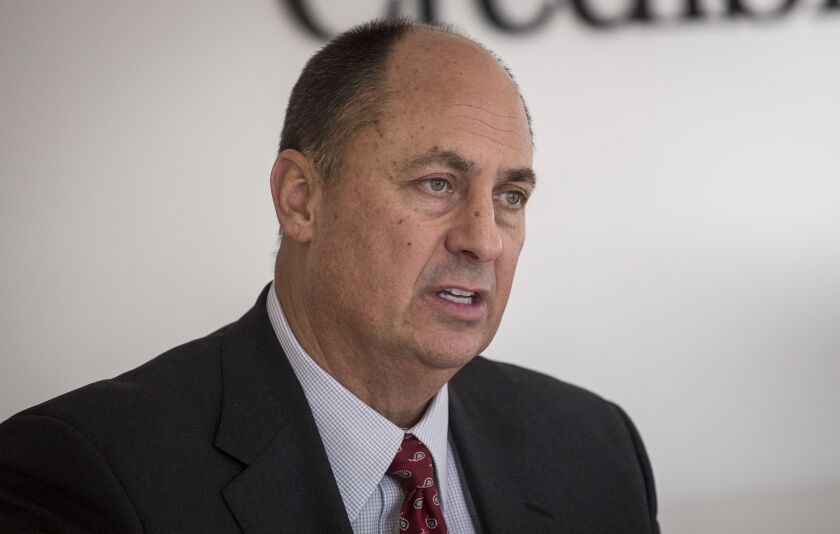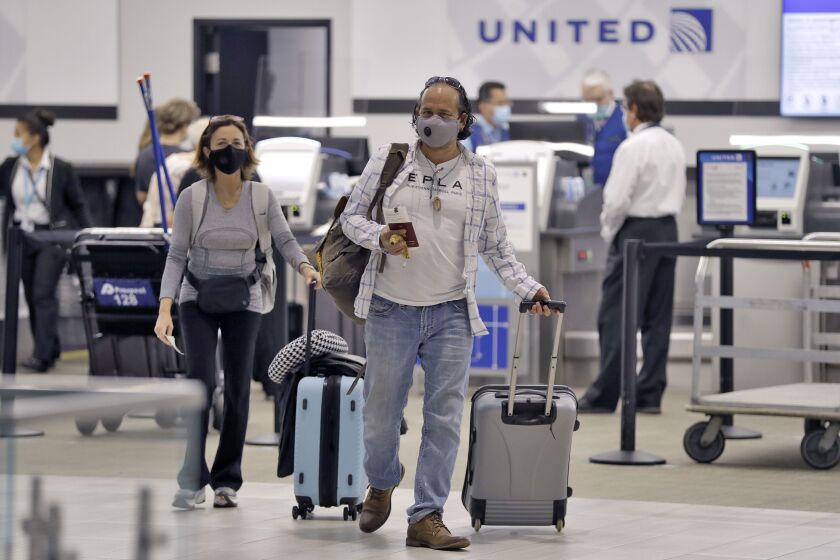A not-for-profit healthcare giant based in Chicago that’s paid more than $80 million in settlements since 2010 over Medicare and Medicaid fraud and other violations of federal law has received about $2 billion in federal money under a program aimed at giving businesses a boost during the coronavirus pandemic.
CommonSpirit Health has gotten the second-highest amount of federal dollars of any Illinois-based company during the COVID-19 pandemic — $718 million in grants and $1.9 billion in loans, records show.
The only Illinois parent company getting more money under the CARES Act — the Coronavirus Aid, Relief, and Economic Security Act — was United Airlines.
CommonSpirit is one of a handful of Illinois companies that have gotten emergency funds during the coronavirus pandemic even after paying out millions in recent years to settle federal violations, according to data compiled and analyzed by Good Jobs First, a nonprofit organization focused on government and corporate accountability.
According to Good Jobs First’s authoritative COVID Stimulus Watch database, settlements paid by CommonSpirit-related entities included:
- $37 million paid by CommonSpirit’s predecessor company Dignity Health in 2014 to settle a federal complaint that 13 of its hospitals in California, Nevada and Arizona knowingly submitted false claims to Medicare and TRICARE. Those involved patients from 2006 to 2010 whose elective stent and pacemaker procedures were improperly billed as scheduled surgeries rather than as less costly outpatient surgeries.
- $16.5 million paid by a London, Kentucky, hospital owned by another CommonSpirit predecessor company, Catholic Health Initiatives, in 2014 after doctors were accused of submitting false Medicare and Medicaid claims for medically unnecessary cardiac procedures. A cardiologist got 30 months in prison in that scheme.
- $10 million paid in a settlement last November involving one of the company’s former hospitals in Louisville, Kentucky. A whistleblower said doctors at Jewish Hospital & St. Mary’s Healthcare in Louisville got kickbacks to steer prescriptions to the hospitals’ in-house pharmacy, which then billed Medicare for diabetes medicine when it wasn’t clear that the medication was needed — or even that it got delivered to patients.
“Paying for medically unnecessary drugs robs vital government health programs of precious resources,” Derrick L. Jackson, special agent-in-charge of the Office of Inspector General of the U.S. Department of Health and Human Services, said at the time of last fall’s Louisville settlement.
Headquartered at 444 W. Lake St. in downtown Chicago, CommonSpirit Health was created in February 2019 by the merger of Catholic Health Initiatives of Englewood, Colorado, and Dignity Health of San Francisco. CommonSpirit operates 137 hospitals and more than 1,000 care sites in 21 states, none in Illinois.
The company, which says it provided $4.45 billion last year in “charity care, community benefit and unreimbursed government programs,” reported an operating loss of $387 million this spring and announced that top executives would take pay cuts of 10% to 20% through June.
CommonSpirit spokesman Dan Loeterman declined to comment on the settlements. He said the CARES Act funding is “critically important” for the company’s hospitals, many of them in under-served or rural areas where they see a high share of Medicaid and Medicare patients.
“Since the pandemic began, we have worked to secure additional supplies and equipment, sustain our capacity and staffing and support our patients and employees even as we had to initially postpone most scheduled services and procedures,” Loeterman said. “This has placed an extreme financial burden on our hospitals. Despite the intense financial challenges, we have had no layoffs as a result of the pandemic and continue to provide the full range of services for our patients.”
Over the past week, much attention over COVID-19 federal help has been focused on the federal Paycheck Protection Program, after a newly released government database revealed that recipients of the forgivable loans included billionaire rapper Kanye West’s clothing line, hedge funds, law firms and private jet companies.
But a much larger pot of federal money — $98 billion in grants and $536 billion in loans — has gone out through other portions of the CARES Act, much of it to airlines and hospitals.
Besides CommonSpirit Health, Illinois businesses that received at least $300 million each in those federal coronavirus-relief grants include:
- United Airlines Holdings, which got $3.5 billion in grants and $1.5 billion in loans.
- Advocate Aurora Health, with $430 million in grants and $687 million in loans.
- The Chicago Department of Aviation, $376 million in grants.
Like CommonSpirit Health, Advocate Aurora Health also has paid out government settlements for violations of the law — a total of $16.2 million since 2010, according to the COVID Stimulus Watch database.
That includes a $12 million settlement in 2018 paid by its subsidiary Aurora Health Care in a federal case involving accusations of excessive compensation paid to two Wisconsin cardiologists in violation of anti-kickback rules.
Company spokeswoman Brigid Sweeney said that settlement involved a compensation arrangement designed years earlier and that the company now has “robust policies and protocols in place to ensure compliance.”
Jim Skogsbergh, Advocate Aurora Health’s chief executive officer, is among the Chicago area’s highest-paid healthcare executives, getting $8.5 million in total compensation in 2018. The company says he will take a 50% pay cut for at least 12 weeks, with the savings going toward a crisis fund to assist employees with basic needs during emergencies.
The company’s losses could hit $1 billion this year given elective surgeries and other nonessential medical procedures that couldn’t be done because of the coronavirus, Sweeney said.
“CARES Act funding has been used to support operations during the pandemic, from continuing to pay our team members to covering capital costs related to caring for COVID patients and increased operating expenses, including PPE,” personal protective equipment, she said.
The Illinois company that’s gotten the most coronavirus money — United — has received some blowback for accepting billions from taxpayers and then warning 36,000 employees they could be furloughed in October.
United has paid $70 million since 2010 to settle cases involving allegations related to employment, safety and consumer protection, the database shows. U.S. Rep. Jesus “Chuy” Garcia, D-Illinois, has slammed United for “careless management and a profits-over-people mindset.”
“Instead of creating a rainy-day fund, airlines like United used record revenues in recent years to purchase stock buybacks,” Garcia said.
United says its CARES Act money went to payroll and benefits — as mandated by the law — and that it ended the stock buybacks in February.
With air travel at “unprecedented lows,” a United spokesman said, “Even with federal assistance that covers a portion of our payroll expense through September 30, we have been spending billions of dollars more than we take in while continuing to employ our entire workforce. That’s not sustainable for any company.”







